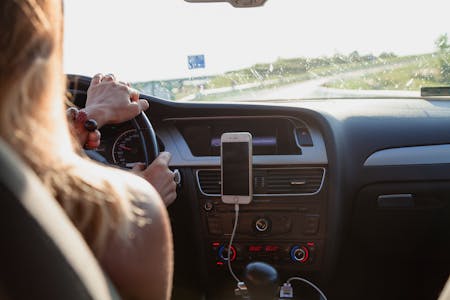

Understanding liability when someone steals your car and gets into an accident is crucial for all car owners. This guide will provide detailed insights into whether you can be held responsible and what steps you should take if such an unfortunate event occurs. Let’s dive into the specifics to help you stay informed and protected.
Stats About Car Theft in the US
| Statistic | Value |
|---|---|
| Total Vehicles Stolen (2023) | 1,020,729 |
| Vehicles Stolen in California (2023) | 208,668 |
| Highest Theft Rate State | Colorado |
| Average Claim for Stolen Cars (2023) | $21,681 |
| Recovered Vehicles (2022) | 85% |
| Most Stolen Vehicle Type | Full-size Pickup Trucks |
| Hyundai and Kia Theft Claim Frequency (2023) | 7 times higher than other makes |
| Auto Theft Victims Aged 20-39 (2022) | 45% |
| Vehicles Stolen from Residences | 33% |
Understanding Liability in Car Theft Accidents
Liability in car theft accidents can be a complex subject. It’s crucial to understand who is responsible when a stolen vehicle is involved in an accident.
This section will explore various aspects of liability to clarify your legal standing. By understanding these details, car owners can better protect themselves from unforeseen consequences.
Explanation of Liability
Liability refers to being legally responsible for something. In car accidents, it involves determining who is at fault and who should pay for the damages.
When your car is stolen, the thief usually takes on the liability for any accidents they cause. However, certain situations might complicate this general rule, making it essential to know the specifics.
Types of Liability (Criminal vs. Civil)
There are two main types of liability: criminal and civil. Criminal liability involves breaking the law and facing penalties like fines or imprisonment. Civil liability involves being responsible for compensating someone for damages.
In the case of a stolen car, the thief would face criminal charges for theft, while civil liability depends on insurance coverage and potential negligence.
Common Misconceptions
Many people think that if their car is stolen, they are automatically responsible for any accidents that occur. This is not usually the case.
Car owners are typically not held liable for accidents caused by thieves. However, it’s important to check your insurance policy and state laws, as there could be exceptions that might hold you partially responsible.
Factors Influencing Liability
Several factors can influence whether you, as a car owner, are liable when your stolen vehicle is involved in an accident. Understanding these factors is crucial in determining your legal responsibility and protecting yourself from potential financial repercussions.
- Actions of the Car Owner
- Prompt Reporting
- Insurance Coverage
- Negligence
- Intent
- State Laws
- Legal Precedents
- Role of Law Enforcement
- Victim Right
- Documentation
Understanding these factors can help you take proactive measures to protect yourself from liability if your car is stolen and involved in an accident. By being aware of these considerations, you can better prepare for such incidents and ensure that you handle them effectively.
Role of Intent in Liability
Intent plays a role in determining liability.
If the car owner intentionally left the car in a vulnerable state, they could be partially liable. However, if the theft was beyond the owner’s control and they took reasonable precautions, they are less likely to be held responsible.
Legal Responsibility of the Car Owner
Car owners have a legal responsibility to take reasonable steps to prevent theft. This includes locking the car, not leaving keys inside, and reporting the theft immediately.
Failing to do these can affect the liability in case of an accident. Owners must act diligently to avoid any potential liability issues.
Exceptions to Liability
There are exceptions to liability in car theft accidents. For instance, if the car was stolen due to the owner’s negligence, the insurance company might refuse to cover the damages.
Understanding these exceptions can help in protecting yourself from liability. Awareness of these nuances can save you from unexpected legal and financial troubles.
Insurance Considerations
Understanding how insurance works in the case of a stolen vehicle accident is vital. Different types of coverage can affect whether you are liable for damages caused by a thief driving your car.
This section will explore the various insurance considerations you need to be aware of. By understanding these aspects, you can ensure you are adequately protected and informed.
Types of Car Insurance Coverage
There are several types of car insurance coverage, each offering different protections.
Liability insurance covers damages you cause to others, while comprehensive insurance covers theft and damage to your vehicle from non-collision events. Additionally, there is collision insurance, which covers damage to your car from accidents.
Understanding the distinctions between these coverages can help you know what to expect if your car is stolen and involved in an accident. Knowing what each type of coverage offers can guide you in choosing the right policy.
How Insurance Policies Address Stolen Vehicles
Insurance policies typically have specific clauses addressing stolen vehicles.
Comprehensive coverage usually protects against theft, meaning your insurance may cover the damages if your car is stolen. However, liability coverage may not extend to incidents involving a stolen vehicle.
Reviewing your policy carefully can provide clarity on what is covered. It’s essential to understand these clauses to avoid surprises during the claims process.
Comprehensive Coverage
Comprehensive coverage is essential for protecting against theft. This type of insurance covers damages to your car that are not caused by collisions, including theft, vandalism, and natural disasters.
If your car is stolen, comprehensive coverage can help pay for repairs or replacement, reducing your financial burden.
Without this coverage, you might face significant out-of-pocket expenses. Ensuring you have comprehensive coverage can provide peace of mind.
Liability Coverage Limits
Liability coverage has limits that dictate the maximum amount the insurance company will pay for damages.
If a stolen car causes an accident, the liability limits might not apply if the policyholder is not at fault. Understanding these limits is crucial to know the extent of your protection and potential out-of-pocket costs.
Each insurance policy has different limits, so it’s important to know yours. Discussing these limits with your insurance provider can help you understand your coverage better.
Reporting Stolen Vehicles to Insurance Companies
Promptly reporting a stolen vehicle to your insurance company is critical.
Immediate reporting can help expedite the claims process and increase the likelihood of recovering your losses. Insurance companies typically require detailed information about the theft and any related incidents to process your claim effectively.
The sooner you report, the quicker the process begins. This can make a significant difference in the outcome of your claim.
Impact on Insurance Premiums
Having your car stolen and involved in an accident can impact your insurance premiums. While comprehensive coverage protects against theft, frequent claims can lead to higher premiums.
Discussing the potential impacts with your insurance provider can help you understand how a stolen car incident might affect your future rates.
Each insurance company handles premiums differently, so knowing how your provider operates is essential. Keeping your record clean can help manage future premiums.
Claims Process
The claims process for a stolen vehicle can be intricate.
It involves filing a police report, submitting it to your insurance company, and providing any necessary documentation. The insurance adjuster will then evaluate the claim and determine the compensation based on your policy.
Knowing the steps involved can make the process smoother. Staying organized and following up can expedite the resolution of your claim.
Documentation Required for Claims
Accurate documentation is vital for successful claims. This includes the police report, proof of ownership, and any communication with law enforcement.
Keeping detailed records can facilitate the claims process and ensure you receive the appropriate compensation for your stolen vehicle.
Missing documents can delay or even jeopardize your claim. Being thorough with documentation can prevent these issues.
Time Limits for Filing Claims
Insurance policies often have time limits for filing claims. It’s essential to be aware of these deadlines to avoid denial of coverage.
Checking your policy and understanding the required timelines can help ensure you file your claim within the allowed period.
Missing these deadlines can result in a loss of coverage. Being prompt and aware can protect your claim rights.
Dealing with Insurance Disputes
Sometimes, disputes arise between policyholders and insurance companies regarding claims. Being prepared to provide additional documentation or seek legal advice can help resolve these disputes.
Goldenzweig Law can assist in dealing with insurance disputes to ensure you receive the compensation you deserve. Having legal support can make a significant difference in the outcome. Knowing your rights and options can empower you in these situations.
Steps to Take If Your Car is Stolen
Having your car stolen can be distressing. Knowing the right steps can help you recover your vehicle and meet legal and insurance requirements. Follow these steps to protect yourself and your assets if your car is stolen.
- Report to the Police
- Notify Your Insurance Company
- Provide Detailed Information
- Cooperate with Law Enforcement
- Monitor for Updates
- Gather Legal Documentation
- Communicate with Insurance Adjusters
- Take Steps to Recover Your Vehicle
- Implement Preventive Measures
Secure Your Legal Rights Today
If you’re dealing with the complexities of a stolen vehicle and potential liability, don’t face it alone.
Contact Goldenzweig Law, your trusted Houston car accident attorney, at 713-903-3988.
Let us help you navigate these challenging legal waters and protect your rights.
Navigation
Related Posts


What is a Non Dot Recordable Accident?
Continue Reading

